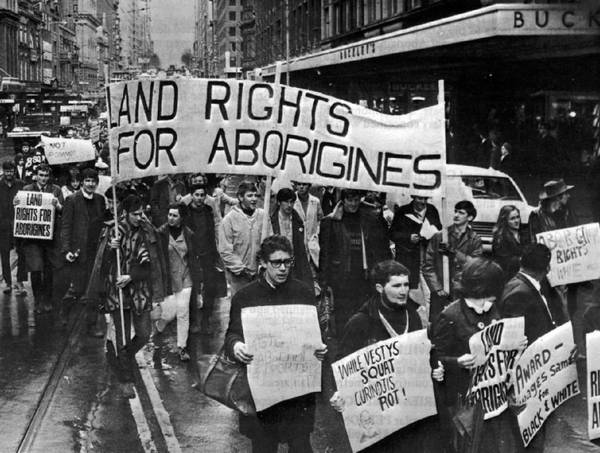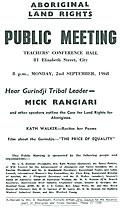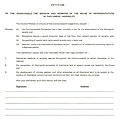National campaign, 1968
From mid 1968 to mid 1969, the Federal Council for the Advancement of Aborigines and Torres Strait Islanders (FCAATSI) campaigned intensively for land rights, with land rights marches continuing over the next four years.

Students, Aboriginal activists and others respond to Cabinet's refusal to make tribal lands available to the Gurindji of Wave Hill.
Source: Courtesy Melbourne Sun, 13 July 1968
Public meetings were held where people could listen to Gurindji leaders such as Mick Rangiari set out their case for a right to land.
Leaflet advertising land rights meeting, Brisbane, 1968
Riley Ephemera collection, State Library of Victoria
Download Leaflet advertising land rights meeting, Brisbane, 1968 [PDF 115kb]
A petition for the recognition of Aboriginal land ownership was drawn up by FCAATSI. Plans were developed to train speakers, lobby parliamentarians, distribute the petition to all states, publicise the campaign, and keep up a regular stream of letters to the editors of metropolitan dailies in order to attack the opposing arguments put by the pastoralists' lobby. FCAATSI also published a booklet setting out the case for land rights which it distributed widely. More than 100,000 people signed a petition which argued that 'common justice and international standards require recognition of traditional ownership rights of indigenous people'. [1]
Land rights petition, FCAATSI, 1968
Pittock papers, Centre for Australian Indigenous Studies, Monash University
In August 1968, the campaign became international when FCAATSI launched its 'Land into Hope International Appeal'. This placed the issue before international bodies such as the World Council of Churches, the United Nations, and other bodies. [2] Political campaigning, and the legal challenge against Nabalco mining in Arnhem Land, ensured that this issue would not be resolved until the federal government took genuine action to create an Aboriginal title to land.
Related resources
People
Organisation
Federal Council for the Advancement of Aborigines and Torres Strait Islanders

